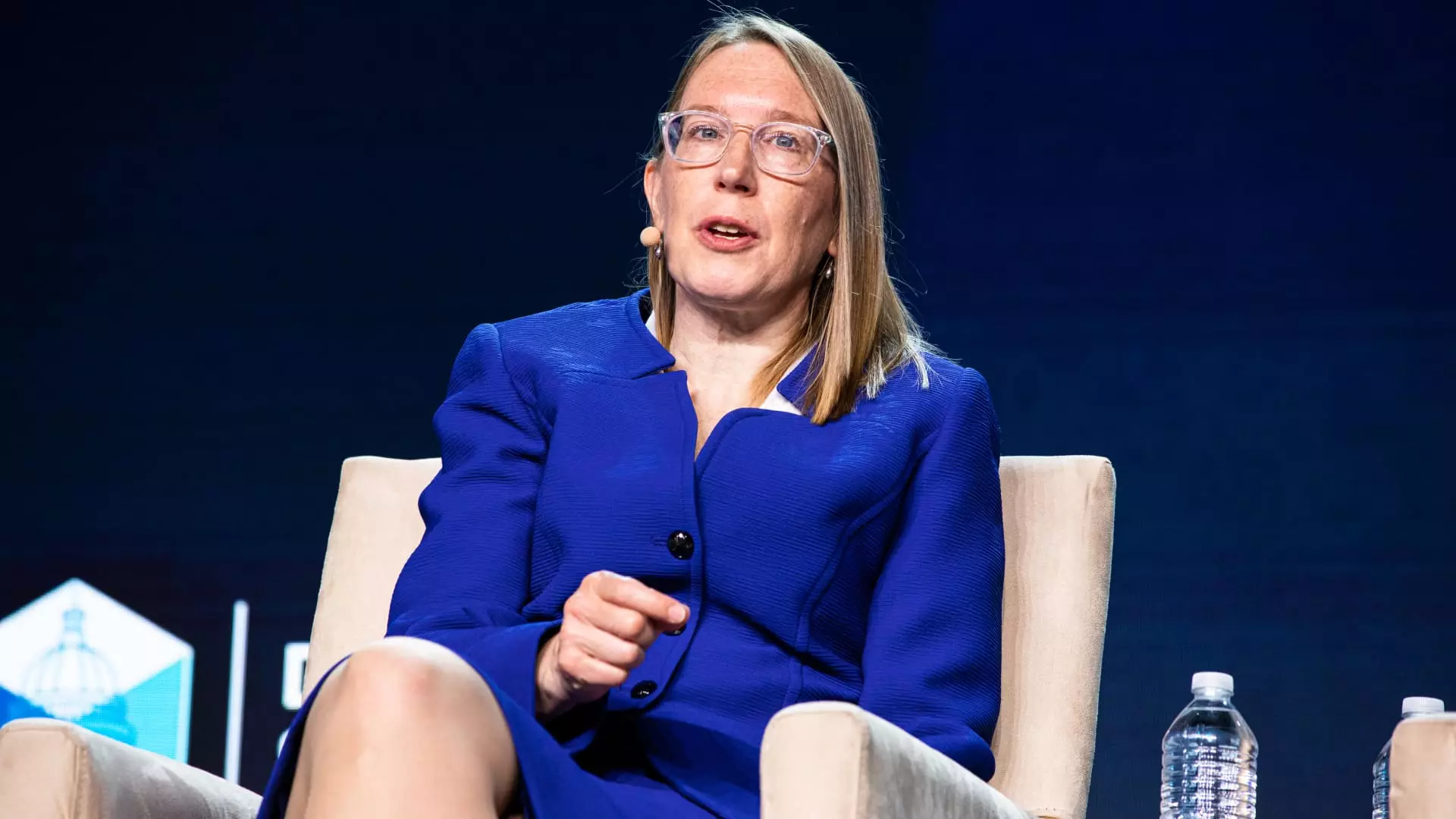The cryptocurrency landscape is constantly evolving, and one of the latest developments has left traditional financial regulators scratching their heads. With the SEC officially stepping back from governing meme coins, investors are expected to tread cautiously in what could quickly become a tumultuous investment environment. The recent comments from SEC Commissioner Hester Peirce only solidify the notion that the agency is choosing a hands-off approach, particularly regarding controversial tokens such as $TRUMP—launched by none other than former President Donald Trump.
Peirce’s assertion that the SEC does not categorize most meme coins as securities represents a significant pivot. This is reminiscent of the agency’s stance on non-fungible tokens (NFTs) during their meteoric rise in popularity in 2021. Just as NFTs drew in a plethora of investors, meme coins like $TRUMP attract attention while lacking any substantive foundation. It begs the question: are regulators failing investors by allowing such high-risk assets to circulate freely?
$TRUMP: A Token with a Catch
The $TRUMP token epitomizes the unique blend of celebrity influence and cryptocurrency hype. Initially launched at the beginning of Trump’s presidency, the token saw an explosive valuation, reaching a staggering $15 billion market cap shortly after its debut. However, like all speculative assets, it was not built to last. Once the initial excitement faded, the token witnessed dramatic deflation, leaving investors with a sense of uncertainty.
The disheartening reality is that the creators of $TRUMP capitalize on every transaction, effectively profiting from the very volatility that harms retail investors. This model raises ethical questions: how can a token be considered legitimate when it predominantly benefits the insiders at the expense of everyday investors?
Furthermore, much of the $TRUMP token is controlled by Turbocharged Holdings, affiliated with Trump himself, suggesting a cynical take on the intersection of celebrity, politics, and finance. The lack of intrinsic value in meme coins serves only to deepen the skepticism surrounding their legitimacy as investments.
Political Backdrop and Conflict of Interest
The intertwining of politics and finance cannot be ignored in the realm of cryptocurrency. As President Trump’s influence over the crypto domain grows, so too do concerns about possible conflicts of interest. Prominent Democratic legislators have started to raise alarms about the implications of the Trump family’s involvement in the cryptocurrency sector, suggesting that $TRUMP may serve as a backdoor to leverage foreign and corporate interests.
The environment created by the previous administration’s economic policies and their subsequent impact on cryptocurrency regulation adds another layer of complexity to the $TRUMP narrative. With the SEC opting for a relaxed regulatory framework, it opens the door for opportunistic investors and politically entrenched entities to exploit the lack of oversight, thus endangering the retail investor who lacks the resources to navigate such murky waters.
The Regulatory Landscape: Navigating Uncertainty
Recent developments reveal a surprising trend in SEC enforcement actions, particularly regarding major firms like Binance, which faced allegations of misleading investors and improper fund management. The dismissal of the SEC’s lawsuit against Binance raises questions about the agency’s commitment to safeguarding investors from financial misconduct in the crypto sphere. To some, this signals a political motivation behind the agency’s regulatory decisions.
Unfortunately, Peirce’s claim that regulators are simply trying to create coherent rules amidst chaos appears to understate the complexity and murkiness of the cryptocurrency market. While regulators can argue they are taking a measured approach to rule-making, the reality shows that this ‘step back’ may only empower unscrupulous actors within the space. By rescinding previous accounting regulations and signaling a lenient stance, the SEC may unintentionally be inviting a wave of risky behavior into an already tumultuous market.
The Call for Investor Vigilance
While the regulatory environment remains ambiguous, one thing is clear: investors in meme coins must approach their decisions with heightened vigilance. The ethos of “buy at your own risk” has never been more pertinent. Regulatory bodies have made it abundantly clear that they lack the capacity or desire to offer protections in this domain, leaving investors to navigate steep declines and market manipulation largely unassisted.
In this wild west of finance, it’s imperative for investors to do their due diligence, actively seek information, and perhaps most importantly, remain skeptical of the buzz surrounding celebrity-driven cryptocurrency projects. A token like $TRUMP may align with the allure of quick riches, but it simultaneously embodies a risky gamble that could lead to devastating financial losses. In such an unpredictable terrain, the stakes need to be weighed with care.

